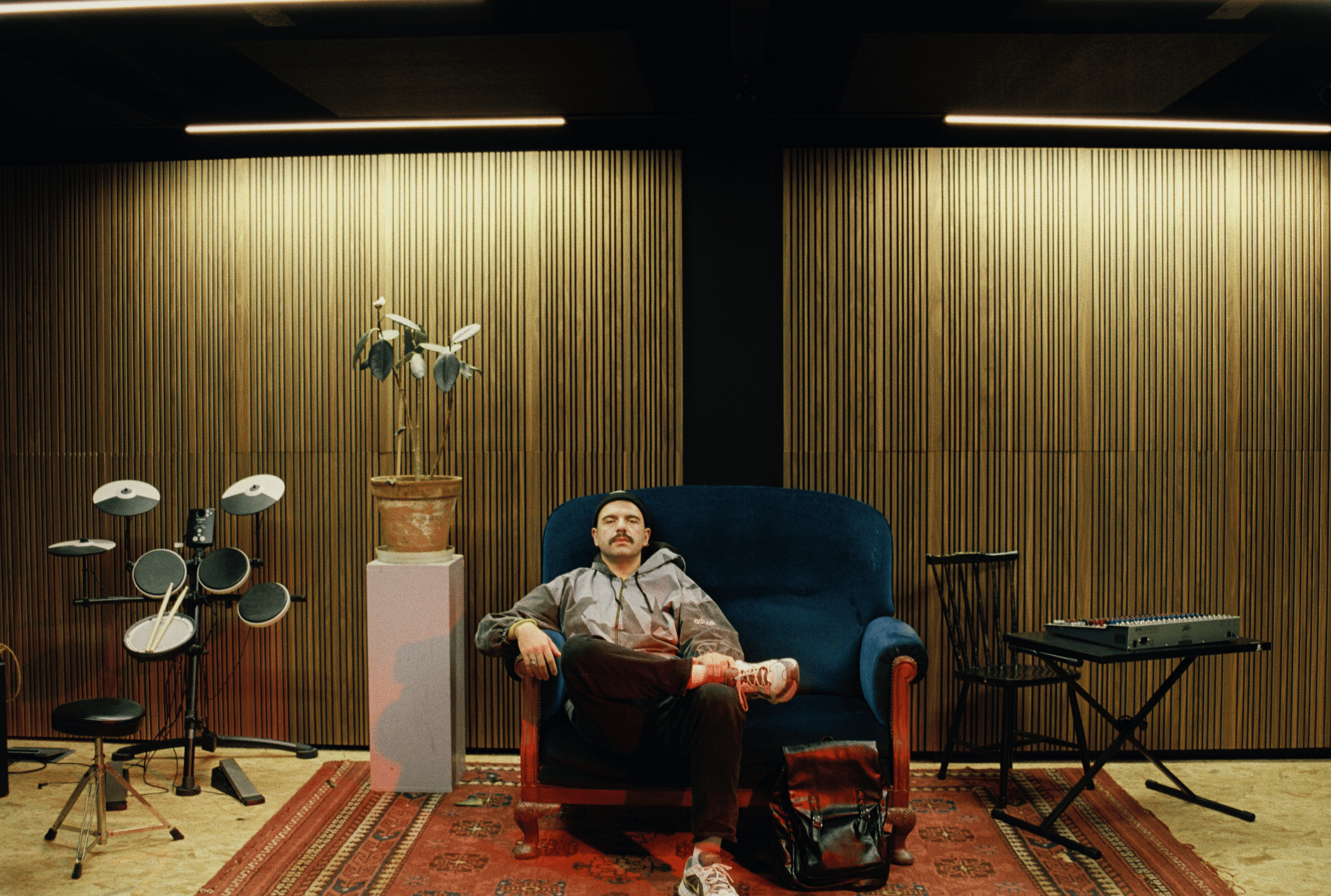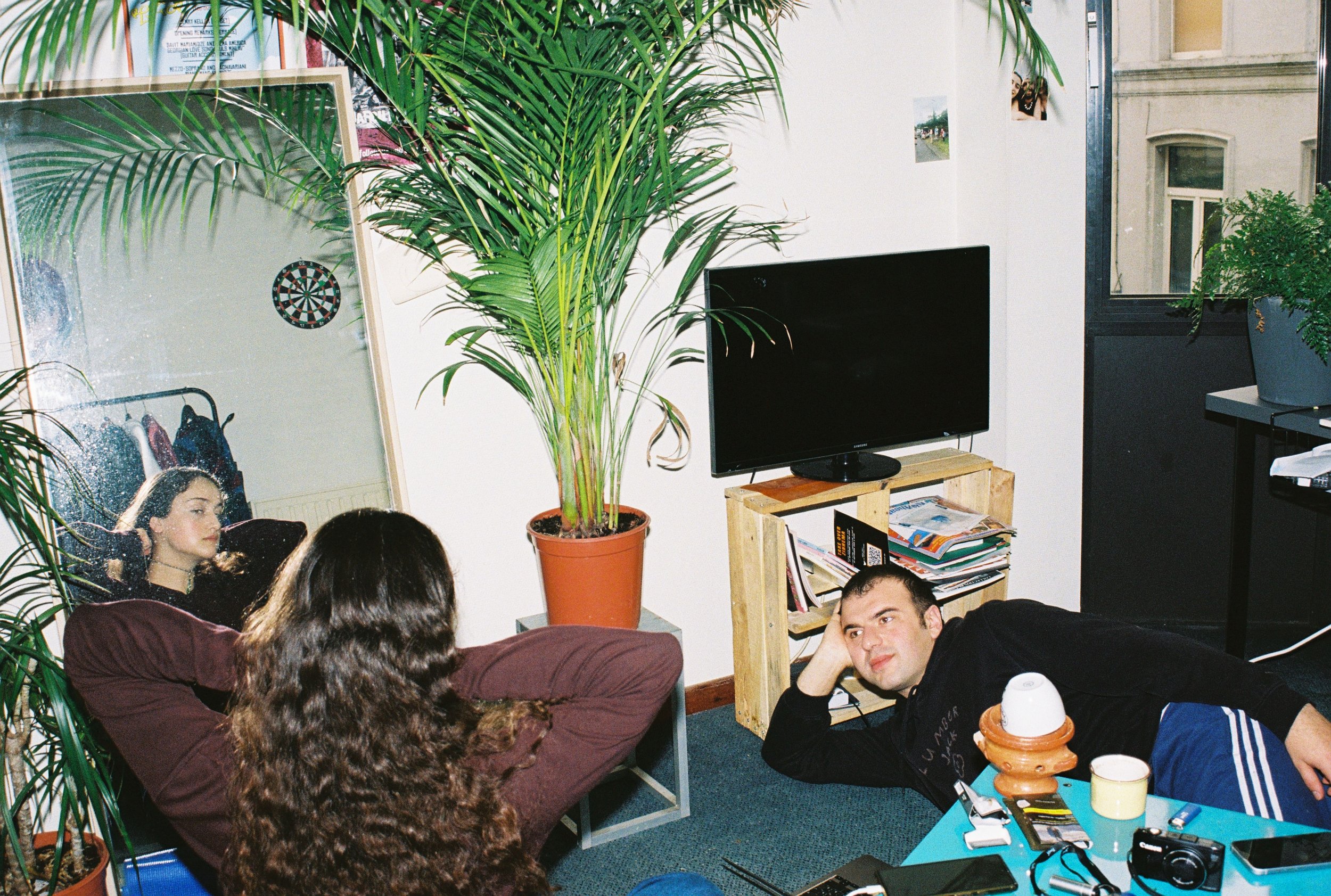
This piece is a reflection of Beco’s (he/they) emotions after three years of moving away from Tbilisi/Ozurgeti, Georgia.
I don’t clearly remember the exact thought process that led me to leave. It wasn’t one specific event but rather the accumulation of experiences and emotions, years of hopelessness, stress, and the inability to imagine a future.
I hadn’t considered seeking asylum in another country. During this time, I became a victim of homophobic violence, and when I went to the police, they seemed to make me feel guilty. This experience made me realize that the system didn’t offer justice. I started seeing everything as a threat.
My first fear was whether I deserved to ask for asylum. I had grown used to living with
homophobia, injustice, and inequality. I was accustomed to it.
My cousin, who had been living here for years, reassured me that I would make it through the process. Their words gave me hope, and that hope was what allowed me to take the step.
Leaving was difficult. I had a decent job and friends, and leaving them felt like severing ties. I questioned whether it was worth it.
I had a limited understanding of what this place could offer. As a queer person, I thought I might have more opportunities for development—both professionally and educationally. In my past jobs, I had to hide my queerness, presenting a different version of myself at work.
The asylum process here made me feel alienated for a year and a half. The system is designed to make you feel small and insignificant. It constantly reminds you that you’re not supposed to want to stay. They make you feel, and even tell you outright, that you should be grateful just for being on Belgian soil.
This feeling of alienation was something I hadn’t expected. There was also the language barrier—state institutions rarely communicate in English, even though they know it. After only a few months, they asked me why I didn’t speak the language.









The turning point came when I started my first job here. I became involved in social life, and my perspective began to shift. When people asked where I worked, I could say, "I work here," instead of just saying I was an asylum seeker. Even during smoke breaks at work, I felt like I belonged there. Before that, I often found myself in places without any real reason.
Renting my own home here for the first time was indescribable. Having my own key, the feeling of stability, and peace—it’s something everyone should have.
While my space is mine, it’s also a place where others can feel welcome.
It’s a privilege to be able to share it.
Now, I finally feel like I have a home here. For a long time, even with my own space, I didn’t have that feeling. It mattered who I shared that space with and who was in the house itself. In Georgia, home wasn’t a place, but a feeling that came from the people around me—people who accepted and needed me, without making me feel like a burden. Home, for me, is about safety—something I never had with my family. Living with my long-time friends, Ano and Stela, gave me that feeling. We do things for each other selflessly, and they help me cope with loneliness.
For the first time, I know what I want to do. It’s still early, but I’m in my second year of pursuing something that feels right, and I’m moving forward.
I’ve created a connection to this place. Given the circumstances—being new, not speaking the local language, and not having ties to this place—I started from a blank page. But through the project I’m working on, I’ve gained a sense of belonging, of home.
About Liaison
Liaison Music is a newly founded community of queer musicians and music enthusiasts, designed to create an inclusive platform where artists, especially those with migration backgrounds, can thrive in a supportive environment. We provide free rehearsal spaces, access to music equipment, and offer informal learning opportunities and knowledge-sharing. Our mission extends beyond just resources; we actively promote artists through events, collaborations, and networking opportunities, helping them build meaningful connections in the music world. Looking ahead, we envision Liaison becoming a non-profit agency specifically for queer migrants. There are artists who have been here for several years, creating amazing music, yet struggling to attract an audience or market their work. This agency will help them grow into independent artists and navigate the challenges of the music industry.
This project is supported by the Council of Europe through the European Youth Foundation.
The content reflects solely the author's perspective, and the funding organisation bear no responsibility for its usage.

